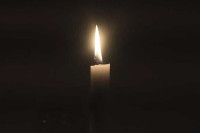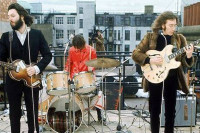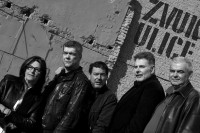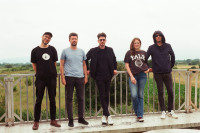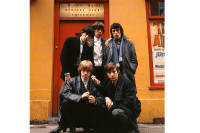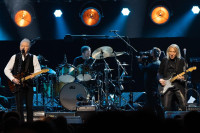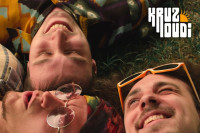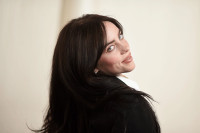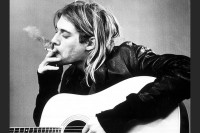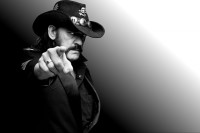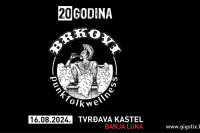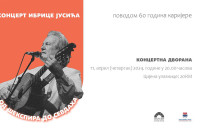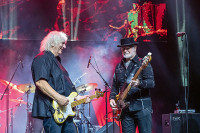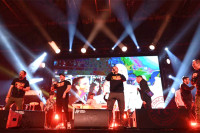Einar Selvik (Wardruna): There is a fine balance between responsibility and freedom
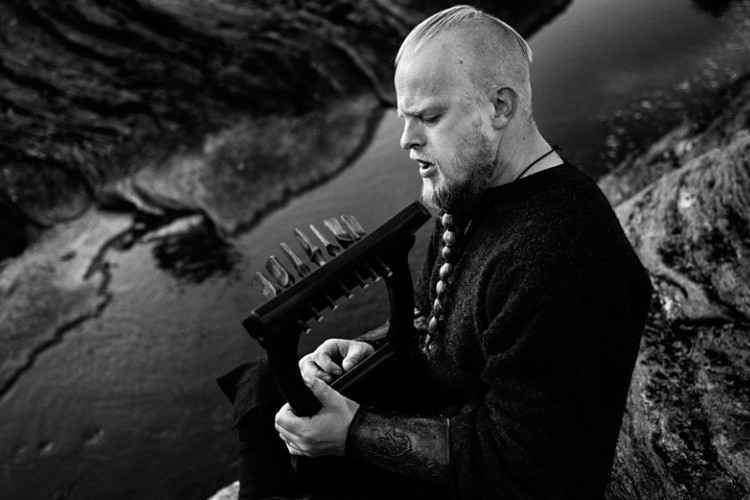
Norwegian band "Wardruna" is a music group formed in 2003. by Einar Selvik along with Gaahl and Lindy Fay Hella.
We have talked on the phone with Einar Selvik about inspiration, their new album and their concert in Belgrade. They will perform in Belgrade on May the 7th. Einar told us that this has been really intense period for "Wardruna", because they have finished their album "Kvitravn".
"Wardruna" released "Runaljod – Gap Var Ginnunga" (2009), "Runaljod – Yggdrasil" (2013), "Runaljod – Ragnarok" (2016) and "Skald" (2018). Their music was included in TV show "Vikings". They create music inspired by Norse culture, mythology and tradition, and they use traditional instruments including primitive deer-hide frame drums, flutes, goat horn, mouth harp, kraviklyr, tagelharpe, and lur.
GLAS: What can you tell us about your new album "Kvitravn" (White Raven) that will be released on June the 5th? How was it created, and what concept did you use?
SELVIK: It is sort of an album that continues where the trilogy stops, at least musically, and also conceptually, I would say. It continues to explore different aspects of these old traditions in a new way, of course. It is not about coping the past or trying to replicate anything. It is more about taking ideas that still carry relevance. And sort of view it in a contemporary creation, that speaks through contemporary people. The album continues to expolore the instruments as well. There are some new instruments, I have never used in any of the previous records. Its always gonna be interesting to see how people perceive it. For people who have heard us before, it's gonna be familiar for sure. It is always the same path, but we continue to grow and we continue to develop, both as a poet, as a musician and as a human I guess.
GLAS: Your music is the proof that we dont need to know the language, in order to be touched by music. When you started creating music, did you expected that? Did you think that people all over the world will be truly and deeply touched by those words and music?
SELVIK: I wasn`t expecting that. I honestly didn`t expect that many people would get the music. I thought it might be too weird. To be honest, I didn't really care either if the other people would like it, as long I like it. I still think the same way. I don't compromise for anyone or anything. I create music that I like to hear. On the other hand, when I started to show my songs to people, I could see that they reacted very strong. Even for Norwegians, this language that i use, its something that feels closer to them, but still they don't understand all the words. I had an indication that there are more people than me on this planet who want to hear music like this. It's amazing to see how the music transcends these cultural borders, age limits and language borders. That's pretty amazing.
GLAS: Your songs are about deep connection with nature, with Earth, with the universe. Do you think people of this age somehow have lost that connection? Somehow, all we talk about is getting back to the roots, like it's supposed to be some kind of obligation, and not completely natural thing?
SELVIK: I am not the preacher of truth, so I won't decide what other people should or shouldn't do. But I do think that a lot of people have a feeling, need or a longing for some form of connectives. We in Western society, we have lost, we sort of broke out of that ring of viewing nature as something sacred, something we are a part of. These days we are acting like we are above it and we try to control it. I do think that people might find those aspects of music to be easy to connect to. That's also kind of what makes it universal in sense, and also timeless. It draws upon some ideas that are timeless, that are universal that are born out of nature, nature that still surrounds us. That makes it relevant and it makes local varieties. It doesn't really matter where are you from, it's the same ideas. I guess that's part of the problem, when we took God out of nature up into the clouds or wherever. We also stopped viewing the nature as something sacred.
GLAS: For me, myths, legends and folk-tales is something that should be cherished in every culture. Would you say that by living through your music, you are somehow a guardian of them? Is a musician sometimes a guardian?
SELVIK: Yes, in a sense. That's part of what "Wardruna" means as well. "Ward" means a warden or a guardian. Runes can mean different things. It can mean written alphabet of the Norse, but the word "rune" can also mean different things. In knowledge it can mean a magical song. It can mean written sign, a secret and it can mean to whisper. So it is the warden of all these things. That's what we try to do, we try to take some of old ideas, not copy them, and we do not try to make music from any specific period. It's more like taking some old ideas, that still carry relevance and create something new with it, that is resonating with contemporary humans.
GLAS: What is your definition of freedom? Are people ever really free?
SELVIK: It's a big question. I don't know if I have the answer to that and a clear definition. There are many types of freedom. There is religious freedom, political, artistic freedom and freedom of speech. It's something that should be guarded. On the other hand, there are norms that you agree upon. If freedom means that you don't have to go to work, that doesn't work. There is a fine balance between responsibility and freedom. It's a big question.
GLAS: Yes, that's why I like to ask this question, it's like a question bomb.
SELVIK: Yes. Well, in my case, artistic freedom is something I find as very important. I think freedom is an important thing in Norway. As a society, I think people are very much cherishing that part. We are lucky in that sense in this country that we have a lot of these things in, at least, higher degree than many other places on this planet. You have freedom of religion and freedom of speech is very much acclaimed and protected.
GLAS: Do you think we really live in an age of change? Does the human race need an actual revolution or something similar in order to achieve some kind of rebirth? Do we have to destroy everything in order to be born again?
SELVIK: I won't put any morals into this and say what people should or shouldn't do, because I don't like preaching, but if you look at time, if you look at history you see that this is the pattern that has always been going on. Our civilization is born and then something goes too far and then it's broken down again. It gives us space for a new one. It is this cycle, a circle that you see every day. The sun rises, shines, warms and then dies at night and then resurrects. You see it in a year, throughout the seasons and you see it in society. If something goes too far to some direction, there is a counter reaction at some point and then there is a change. That is the pattern that has been the case. Whether or not we are at that point, it's difficult to say, but we are definitely moving very far in certain directions that seem very dramatic. I think there is definitely a room for change.
GLAS: So, many people found out about your music whilst watching The Vikings. What can you tell us about that experience — creating music for the show?
SELVIK: It's always interesting to do new things and to have new challenges in life and as a musician as well. There is nothing exciting or there is no growth in comfort zone. So, these kind of new challenges are healthy and of course being part of such a big production as "Vikings" gave me new knowledge and made me to have to learn new things. I am very grateful for that and of course it's a great thing to have your music portrayed and shown in front of such a big audience of people for so many years. It's been a very good thing to be a part of that. I am very grateful.
GLAS: So, are you excited to perform in Belgrade? What is your expectation?
SELVIK: Yes, I am very excited about playing in Belgrade. I have received a lot of messages and mails throughout the years from this region. It feels good to finally be able to visit Serbia. It's always interesting to come to a new place and sing our songs, and to connect to the people. We are not machinery and performance isn't something static. Every concert is different because performing is not a monologue. It's a dialogue. You connect to the room and the people and share a moment. So, I am very much looking forward to it.
Pratite nas na našoj Facebook i Instagram stranici i Twitter nalogu.
